 W
WAdriaan Anthonisz (1527–1607) was a Dutch mathematician, surveyor, cartographer, and military engineer who specialized in the design of fortifications. As a mathematician Anthonisz discovered in 1585 the ratio of a circle's circumference to its diameter, which would later be called pi.
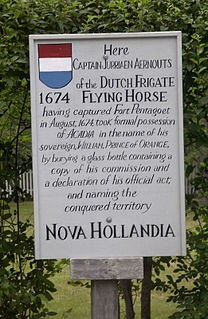 W
WJurriaen Aernoutsz was a Dutch colonial navy captain, who briefly conquered the capital of Acadia, Fort Pentagouet in Penobscot Bay and several other villages, and renamed the colony New Holland during the Franco-Dutch War.
 W
WPhilips van Almonde was a Dutch Lieutenant Admiral, who served in his nation’s maritime conflicts of the 17th and early 18th centuries.
 W
WLaurens Jacobsz Alteras was a 17th-century Dutch vice admiral who distinguished himself as fleet commander under Jacob van Heemskerck in the battle of Gibraltar of 1607.
 W
WHans Willem van Aylva was a Dutch soldier.
 W
WAdriaen van Trappen Banckert was a Dutch admiral. In English literature he is sometimes known as Banckers. His first name is often rendered in the modern spelling Adriaan. Van Trappen was the original family name, but the family was also and better known under the name of Banckert. In the 17th century Netherlands such a situation was solved by combining the two names.
 W
WJoost van Trappen Banckert was a Dutch Vice Admiral who worked most of his sailing life for the admiralty of Zeeland.
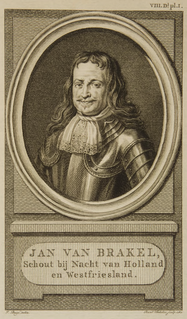 W
WJan van Brakel was a Dutch rear admiral who distinguished himself on many occasions during the Second and Third Anglo-Dutch wars and the Nine Years War.
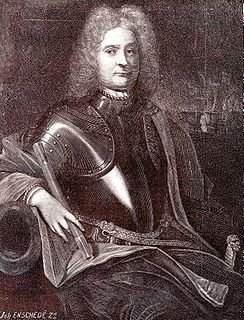 W
WGerard Callenburgh was a Dutch admiral.
 W
WMenno, Baron van Coehoorn was a Dutch soldier and engineer, regarded as one of the most significant figures in Dutch military history. In an era when siege warfare dominated military campaigns, he and his French counterpart Vauban were the acknowledged experts in designing, taking and defending fortifications.
 W
WCornelius Cruys was a Norwegian–Dutch admiral of the Imperial Russian Navy, and the first commander of the Russian Baltic Fleet.
 W
WCornelis Evertsen the Elder was a Dutch admiral.
 W
WCornelis Evertsen the Younger was a Dutch Admiral from the 17th century.
 W
WCornelis Evertsen the Youngest was a Dutch admiral from the 17th century.
 W
WJohan Evertsen was an admiral who was born in the 17th century.
 W
WHenri de Fleury de Coulan, Sieur de Buat, St Sire et La Forest de Gay was a captain of horse in the army of the Dutch Republic, who became embroiled in a celebrated conspiracy during the First Stadtholderless Period to overthrow the regime of Grand Pensionary Johan de Witt in favor of future Stadtholder William III, known as the Buat Conspiracy. He was convicted of treason in 1666 and executed.
 W
WPieter Florisz was a Dutch Vice Admiral during the 17th century. He died during the Battle of the Sound.
 W
WFrederick Henry was the sovereign prince of Orange and stadtholder of Holland, Zeeland, Utrecht, Guelders, Overijssel in the Dutch Republic from 1625 until his death in 1647. The last seven years of his life he also was the stadtholder of Groningen (1640-1647).
 W
WJohan "Jan" van Galen was a Commodore of the Republic of the Seven United Provinces of the Netherlands. he participated in the First Anglo-Dutch War.
 W
WWillem Joseph baron van Ghent tot Drakenburgh was a 17th-century Dutch admiral. His surname is also sometimes rendered Gendt or Gent.
 W
WHendrik Gravé was a Dutch admiral.
 W
WSteven van der Hagen was the first admiral of the Dutch East India Company (VOC). He made three visits to the East Indies, spending six years in all there. He was appointed to the Raad van Indië. Van der Hagen protested against the harsh administration of the administrators, who wanted a monopoly on the clove trade and were willing to fight against their Spanish, Portuguese, English or Asiatic trade competitors in order to get it. Laurens Reael and Steven van der Hagen wrote with disapproval on how the Heren XVII treated the interests and laws of the Maluku population.
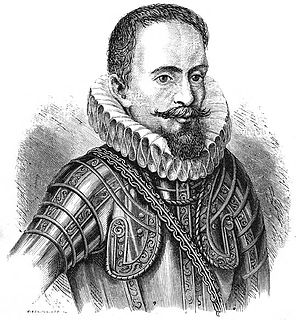 W
WJacob van Heemskerck was a Dutch explorer and admiral.
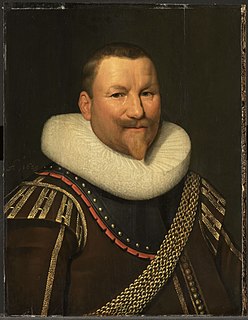 W
WPiet Pieterszoon Hein was a Dutch admiral and privateer for the Dutch Republic during the Eighty Years' War. Hein was the first and the last to capture a large part of a Spanish treasure fleet which transported huge amounts of gold and silver from Spanish America to Spain. The amount of silver taken was so big that it resulted in the rise of the price of silver worldwide and the near bankruptcy of Spain.
 W
WAbraham van der Hulst was a Dutch admiral in the 17th century.
 W
WJohn Maurice of Nassau was called "the Brazilian" for his fruitful period as governor of Dutch Brazil. He was Count and Prince of Nassau-Siegen, and Grand Master of the Order of Saint John.
 W
WEgbert Bartholomeuszoon Kortenaer or Egbert Meussen Cortenaer was an admiral of the United Provinces of the Netherlands who was killed in the Battle of Lowestoft.
 W
WLouis of Nassau, Lord of De Lek and Beverweerd was a Dutch soldier. He was the illegitimate son of Margaretha van Mechelen and Maurice, Prince of Orange, and so a collateral member of the House of Orange-Nassau. He was a Lord of the heerlijkheid De Lek and Beverweerd. From his father he inherited the estate of Beverweerd; and when his older brother Willem died in 1627 he inherited his estate as well.
 W
WCornelis Matelief de Jonge was a Dutch admiral who was active in establishing Dutch power in Southeast Asia during the beginning of the 17th century. His fleet was officially on a trading mission, but its true intent was to destroy Portuguese power in the area. The fleet had 1400 men on board, including 600 soldiers. Matelieff did not succeed in this. The Dutch would ultimately gain control of Malacca more than thirty years later, again joining forces with the Sultanate of Johor, and a new ally Aceh, in 1641. He was born and died in Rotterdam.
 W
WMaurice of Orange was stadtholder of all the provinces of the Dutch Republic except for Friesland from 1585 at the earliest until his death in 1625. Before he became Prince of Orange upon the death of his eldest half-brother Philip William in 1618, he was known as Maurice of Nassau.
 W
WWillem van Nassau, Lord of De Lek was a Dutch soldier from 1620 until 1627. He was the illegitimate son of stadholder Maurice of Nassau, Prince of Orange and his mistress Margaretha van Mechelen. Like their other illegitimate children, he was recognized with the surname Nassau-LaLecq. He went by the title Rijksgraaf van Nassau-LaLecq" and was also popularly known in French as the "Chevalier de Nassau". After 1625 he was granted lands and the title Lord of De Lek. He received his heerlijkheid of De Lek as a bequest from his father to him and his descendants. His brother Lodewijk van Nassau had the title "Lord of Beverweerd and Odijk".
 W
WLaurens Reael was an employee of the Dutch East India Company, Governor-General of the Dutch East Indies from 1616 to 1619, and an admiral of the Dutch Republican Navy from 1625 to 1627.
 W
WEngel Michielszoon de Ruyter was a Dutch vice-admiral.
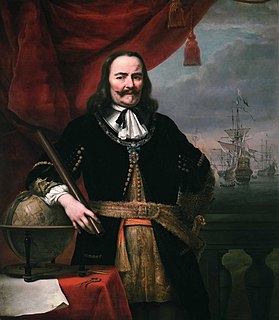 W
WMichiel Adriaenszoon de Ruyter was a Dutch admiral. Widely celebrated and regarded as one of the most skilled admirals in history, De Ruyter is arguably most famous for his achievements with the Dutch Navy during the Anglo-Dutch Wars. He fought the English and French forces and scored several critical victories, with the Raid on the Medway being the most famous among them.
 W
WGilles Schey was a Dutch admiral.
 W
WAuke Andriesz Stellingwerf was a Dutch admiral who served the Admiralty of Friesland and died while commanding a squadron in the battle of Lowestoft.
 W
WJochem Hendrickszoon Swartenhont was a Dutch naval officer in the navy of the Dutch Republic from the 17th century.
 W
WCornelis Maartenszoon Tromp was a Dutch naval officer who served as lieutenant-admiral general in the Dutch Navy, and briefly as a general admiral in the Royal Danish Navy. Tromp fought in the Anglo-Dutch Wars and the Scanian War. His father was Lieutenant Admiral Maarten Tromp.
 W
WMaarten Harpertszoon Tromp was a Dutch army general and admiral in the Dutch navy.
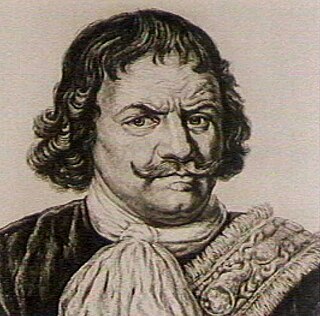 W
WTjerk Hiddes de Vries was a naval hero and Dutch admiral from the seventeenth century. The French, who could not pronounce his name, called him Kiërkides. His name was also given as Tsjerk, Tierck or Tjerck.
 W
WJacob, Banner Lord of Wassenaer, Lord Obdam, Hensbroek, Spanbroek, Opmeer, Zuidwijk and Kernhem was a Dutch nobleman who became lieutenant admiral, and supreme commander of the navy of the Dutch Republic. The name Obdam was then also spelled as Opdam. British contemporaneous sources typically refer to him as Admiral Opdam or Lord Obdam because it was not until 1657 that he bought the Wassenaar Estate from relatives and thus acquired its title. Modern Dutch sources sometimes less correctly insert a second "van" between "Wassenaer" and "Obdam" or use the modern spelling "Wassenaar".
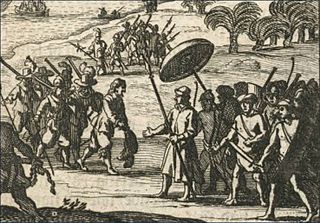 W
WSebald or Sebalt de Weert was a Flemish captain and vice-admiral of the Dutch East India Company. He is most widely remembered for accurately plotting the Falkland Islands in 1600.
 W
WWilliam III, also widely known as William of Orange, was sovereign Prince of Orange from birth, Stadtholder of Holland, Zeeland, Utrecht, Guelders and Overijssel in the Dutch Republic from the 1670s and King of England, Ireland and Scotland from 1689 until his death. As King of Scotland, he is known as William II. He is sometimes informally known as "King Billy" in Ireland and Scotland. His victory at the Battle of the Boyne in 1690 is commemorated by unionists, who display orange colours in his honour. Popular histories usually refer to his joint reign with his wife, Queen Mary II, as that of William and Mary.
 W
WWilliam Louis of Nassau-Dillenburg was Count of Nassau-Dillenburg from 1606 to 1620, and stadtholder of Friesland, Groningen, and Drenthe.
 W
WWitte Corneliszoon de With was a Dutch naval officer. He is noted for planning and participating in a number of naval battles during the Eighty Years War and the First Anglo-Dutch war.
 W
WWillem van der Zaan was a Dutch Admiral. His name is often given in the 17th century spelling Zaen.